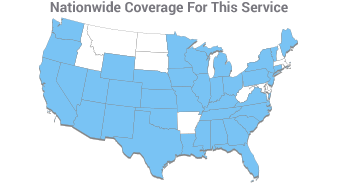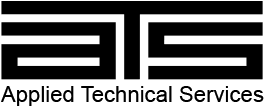ASTM F1044 Shear Testing of CaP and Metallic Coatings
The ASTM F1044 standard recommends test methods to determine the shear strength of calcium phosphate (CaP) or metallic coatings on dense metal implant surfaces. To gain FDA approval, manufacturers must prove a medical device can perform safely and reliably when under the conditions in the human body, such as shear loading.
The Need for Shear Testing
To anticipate how the device handles in vivo shear loads, ASTM created standard F1044 for testing the shear strength of Calcium Phosphate and metallic coatings. Manufacturers turn to third parties such as the ATS FoC for quality testing from accredited facilities. We operate multiple A2LA-accredited medical device testing labs. Our experts can help manufacturers make redesign choices for life-changing medical devices and test product compliance with industry standards and FDA regulations, such as ASTM F1044.
ASTM F1044 Testing Methods
ASTM F1044 outlines two methods for testing coatings: aligned interface testing for metallic and calcium phosphate coatings and lap shear testing for metallic coatings. In both methods, lab technicians apply a constant shear load until the coating separates completely from the substrate surface.
We can calculate shear strength based off the mechanical properties in a coating material and the adhesive that binds the coating to the substrate surface. Manufacturers may apply adhesives as a thin film or cement or forego the use of adhesives by binding the two materials with thermomechanical means.
Our clients can use the rigorous testing results to decide the next steps for their product. Manufacturers may redesign the product with a new coating, adhesive method, adhesive material, or substrate material so the coating does not separate from the implant. If satisfied with the device’s strain strength, manufacturers may decide to submit the medical device to the FDA for premarket approval.
We perform dynamic testing in a saline, temperature-controlled environment until device failure or the 10,000,000th cycle. We can adjust dynamic tests to simulate common loading conditions: flexion, extension, lateral bending, and axial rotation.
Medical Device Testing with the ATS FoC
ATS offers elite customer service and a quick turnaround rate to empower our clients to make effective business decisions and maintain standard and regulatory compliance. Capable of reaching clients both on-site and remotely, our experts provide insight and precision in all consulting engineering, calibration, inspection, and testing services. We hold multiple ISO/IEC 17025 accreditations in calibrations and mechanical testing, chemical testing, electrical testing, and nondestructive testing.
Let the ATS FoC support your medical device testing needs. Call +1 (888) 287-5227 or submit the request form on this page to schedule ASTM F1044 compliance testing with the ATS FoC.

Request Form
"*" indicates required fields
Medical Device Testing
ASTM Testing
- ASTM F1044 Shear Testing of CaP and Metallic Coatings
- ASTM F1160 Shear and Bending Fatigue of Coatings
- ASTM F1233
- ASTM F1264 Intramedullary Fixation Device Testing
- ASTM F1357 Articulating Total Wrist Implant Testing
- ASTM F1378 Shoulder Prostheses Testing
- ASTM F1541 ESFD Testing
- ASTM F1672 Patellar Prosthesis Testing
- ASTM F1714 Gravimetric Wear Assessment of Prosthetic Hip Design in Simulator Device Testing
- ASTM F1717 Spinal Implant Testing
- ASTM F1781 Elastomeric Flexible Hinge Finger Total Joint Implants Testing
- ASTM F1798 Spinal Implant Subassembly Testing
- ASTM F1820 Modular Acetabular Device Strength Testing
- ASTM F1829 Glenoid Locking Mechanism Shear Testing
- ASTM F1875 Fretting Corrosion Testing of Hip Implant Interfaces
- ASTM 2009 Modular Prostheses Taper Connection Testing
- ASTM F2025 Wear Assessment of Polymeric Components
- ASTM F2028 Glenoid Loosening Testing
- ASTM F2077 Intervertebral Body Fusion Device Testing
- ASTM F2183 Small Punch Testing
- ASTM F2193 Spinal Fixation Components
- ASTM F2267 Measuring Subsidence of Intervertebral Fusion Devices
- ASTM F2346 Standard and Dynamic Testing of Artificial Intervertebral Discs
- ASTM F2423 Wear and Fatigue Testing of Total Disc Prostheses
- ASTM F2502 Absorbable Plate and Screw Testing
- ASTM F2554 CAS System Precision Testing
- ASTM F2624 Static, Dynamic, and Wear Testing of Extra-Discal Spinal Implants
- ASTM F2624 Spinal Implant Dynamic Testing
- ASTM F2694 Lumbar Total Facet Prosthesis Testing
- ASTM F2706 Spinal Implant Fatigue Testing
- ASTM F2789 Mechanical and Functional Characterization of Nucleus Devices
- ASTM F2790 Static and Dynamic Testing of Total Facet Prostheses
- ASTM F382 Metallic Bone Plates Testing
- ASTM F384 Angled Orthopedic Fixation Testing
- ASTM F543 Metallic Medical Bone Screw Testing
- ASTM F564 Metallic Bone Staple Testing
ISO Testing
- Biocompatibility Testing for Medical Devices ISO 10993
- ISO-10328 Structural Testing of Lower Limb Prosthetics
- ISO 10993 Biocompatibility
- ISO 10993 Biocompatibility Testing
- ISO 10993 Testing
- ISO 10993 Testing Lab
- ISO 18192-1 Wear Testing for Intervertebral Disc Prostheses
- ISO 12189 Fatigue Testing of Flexible Spinal Implants
Medical Device Testing
- Fatigue Testing Lab
- Implant Testing
- Material Testing Laboratory
- Material Device Regulatory Compliance Testing
- Medical Device Testing
- Medical Device Testing Certification
- Medical Device Materials Testing
- Medical Device Materials Testing Consulting
- Medical Device Mechanical Testing
- Medical Device Mechanical Testing Regulations
- Medical Device Performance Testing
- Medical Device Product Testing
- Medical Device Reliability Testing
- Medical Device Standards Testing
- Medical Device Standards Testing Certifications
- Medical Device Testing Companies
- Medical Device Testing Services
- Medical Device Testing Lab
- Medical Implant Testing Lab
- Orthopedic Device Approval Testing
- Orthopedic Device Testing
- Prosthetic Testing
- Prosthetic Testing Services
- Prosthetic Testing Services
- Spinal Implant Testing
